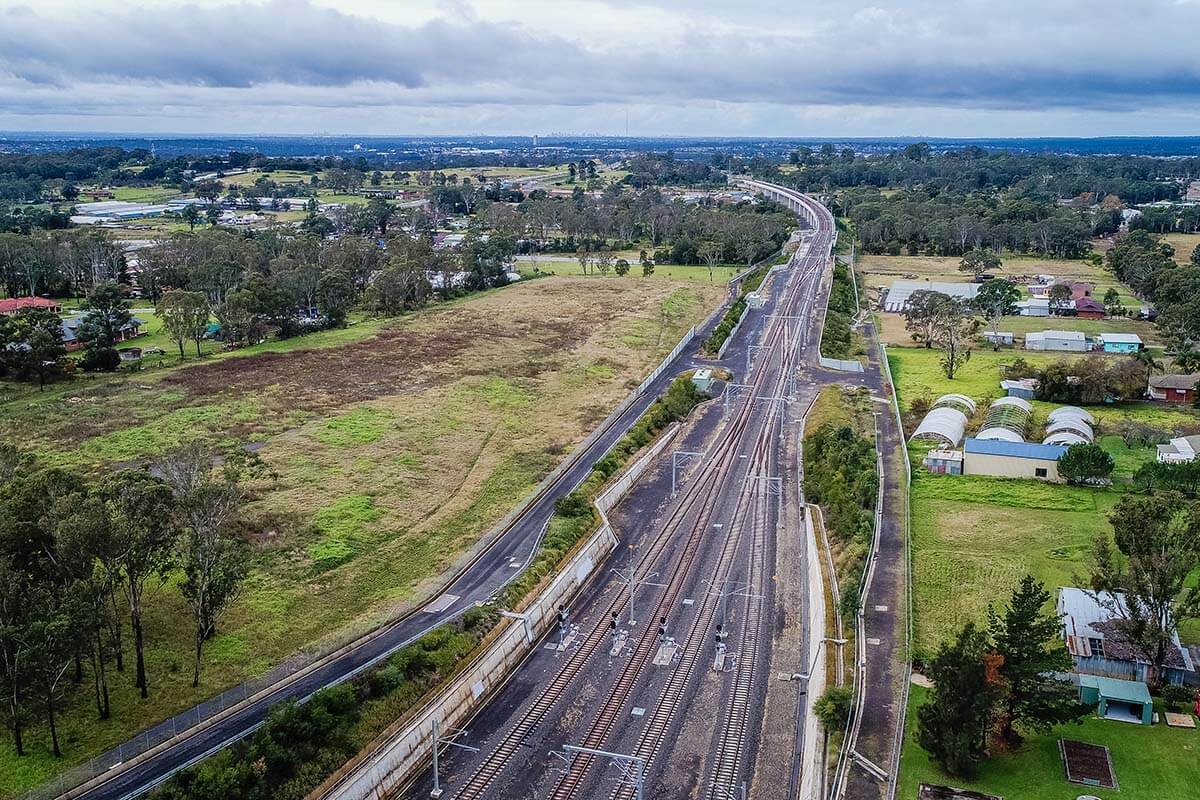The Growth Centres Program is playing a critical role in delivering much needed housing in the north-west and south-west growth areas of western Sydney, while also protecting some of the city’s best remaining bushland for generations to come.
The program ensures faster development approvals in 6 local council areas, including Blacktown, Hawkesbury and The Hills in the north-west, and Camden, Campbelltown, and Liverpool in the south-west. This is achieved through biodiversity certification, which removes the need for individual biodiversity assessment in certified areas when development applications are lodged. The program applies to approximately 27,000 ha of land and has already delivered almost 100,000 homes. It is expected to support the delivery of an additional 150,000 new homes by 2041.
The program also generates revenue for the NSW Government to buy land for new reserves and secure funding agreements with landowners to permanently conserve their land, offsetting the impacts of development on biodiversity through the Growth Centres Biodiversity Offset Program.
The program sets out commitments which require the permanent protection of 2,000 ha of existing native vegetation within the growth areas and the protection of at least 2,400 ha of either Cumberland plain woodland or other grassy woodland communities outside the growth areas.
The biodiversity certification applies to land identified in the North West Growth Centre and the South West Growth Centre.
Review and extension
Together with the Department of Climate Change, Energy, the Environment and Water (DCCEEW), we are reviewing the program and plan to extend the framework in 2 stages.
-
Stage 1 – 12-month extension transitional period
The NSW Government has extended the program’s biodiversity certification until 30 June 2026. This certification speeds up development application approval times by removing the need for site by site threatened species assessments.
By addressing environmental impacts upfront, the certification provides greater certainty for developers and conservation outcomes for the community.
This transitional period allows for a thorough review and refinement of the program, while ensuring continued certainty for stakeholders. No changes to the relevant environmental planning controls are proposed during this period.
DCCEEW invited public feedback on the proposed extension between Thursday, 3 April and Saturday, 3 May 2025. The feedback received helped finalise the proposed extension.
-
Stage 2 – detailed review and transition (financial year 2025–26)
DCCEEW is conducting a comprehensive review of the biodiversity certification. This review will likely lead to updates to the biodiversity certification policy. The Minister for Environment will provide further updates once a decision has been made.
Depending on the review outcomes, DCCEEW may recommend an extension for the program beyond 1 July 2026. If changes are required to the planning framework, including the applicable State Environmental Planning Policies, we will lead on this work.
Our role in this transition
We support the review and potential extension through:
- updating environmental planning controls to reflect any changes to biodiversity certification
- reviewing the funding arrangements associated with biodiversity offsets and land acquisition for conservation
- supporting the transition from the special infrastructure contribution (SIC) to the housing and productivity contribution (HPC) framework, effective 1 July 2026.
It is anticipated that we will publicly exhibit these proposed changes in early 2026. The Housing and Productivity Contribution – Implementation Guideline (PDF, 6.4 MB) released in August 2023 already provides details of the proposed transition from SIC to HPC.
Together, these coordinated efforts will ensure that planning system amendments, the housing and productivity contribution transition, and biodiversity certification changes are finalised by 1 July 2026.
